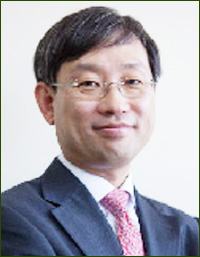Misfortunes strike Naver
 NHN, the Internet search company that runs Naver, is weathering a sea of troubles, including corporate fund embezzlement and a massive brain drain.
NHN, the Internet search company that runs Naver, is weathering a sea of troubles, including corporate fund embezzlement and a massive brain drain.
The two factors indicate that the firm’s management is losing its grip, experts said.
According to NHN Tuesday, one NHN official is suspected of embezzling about 3.6 billion won. NHN reported the case, involving an employee surnamed Park in the supplies department, to the authorities.
The employee was accused of selling the company’s products at exorbitant prices, after financial anomalies were found during an internal audit.
“The issue with this employee is an isolated case,” said an NHN representative. “There is no update on the matter as of yet, and we have no official statement planned.”
The case comes at a time when an increasing number of NHN’s senior executives have quit the company due to what officials and analysts say is the bleak business outlook of the search giant.
“The problem is we don’t have many options to effectively overcome the current business difficulties,” said a high-ranking industry executive, requesting anonymity.
Hong Eun-taek, the vice president who supervised Naver Newscast, left the company in March. Department heads of portal services and the smartphone games (Hangame) division, Choi Sung-ho and Wi Eui-seok respectively, turned in their resignations Monday and are leaving the company this month. At least one other high level executive is thought to be calling it quits as well.
All three officials worked for over five years in Naver and were integral to the company’s development in the mid-2000s.
Rumors of internal conflict and discontent among employees are surfacing due to the situation, with those in middle ranking and junior positions rumored to be leaving for the rising social commerce market.
Naver strongly denied the speculations.
“Hong has nothing to do with current situation. He was planning to leave the company for some years, and repeatedly stated his intention (to quit),” said the representative.
“The timing of his resignation and other things happening concurrently is just a coincidence,” the official said.
Though NHN posted record sales of over 2 trillion won last year, the company is facing one of the toughest times on the business front due to market saturation and its failed attempt to go global.
The precarious situation prompted founder Lee Hae-jin to hold a massive internal conference in March to address the onslaught of internal and external problems. He told employees, “we must go back to the mindset we had at the beginning,” and asked for a “venture spirit.”
Lee also slammed the lack of discipline among workers, vowing to create a strong corporate culture and hinted at a possible leadership changes that will see multiple personnel changes, with some posts eliminated for good.
Having now grown into a large firm with over 3,000 employees, Lee has expressed fears that creativity was dying fast within the company and vowed to restructure it.
The top officials, who tendered their resignations were closely involved in the company’s traditional main stay search engine and advertising, and their departure can be seen as Naver’s changed direction to focus on the rising mobile and social network services.
Naver is continuing to show dominance in web services but has not yet made any headway in the rising mobile sector. Their smartphone messenger service “Line” has accumulated over 30 million foreign subscribers, mostly in Japan. However, the most widely used smartphone messenger is KaKao Talk created by former Naver executive and cofounder Kim Beom-soo.
Naver’s search engine, that dominates the PC platform, is yet to show the same success in its mobile counterpart. Google is the top web portal for smartphones consumers.
“It is true that Naver has been rather behind in creativity,” said a Seoul-based analyst. “There is no chance for other foreign companies to tap into web portal (of the PC platform) held strongly by Naver, but it can be noted that Naver has not made any innovations in recent years due to its strong domestic presence.” <Korea Times/Cho Mu-hyun>

























































